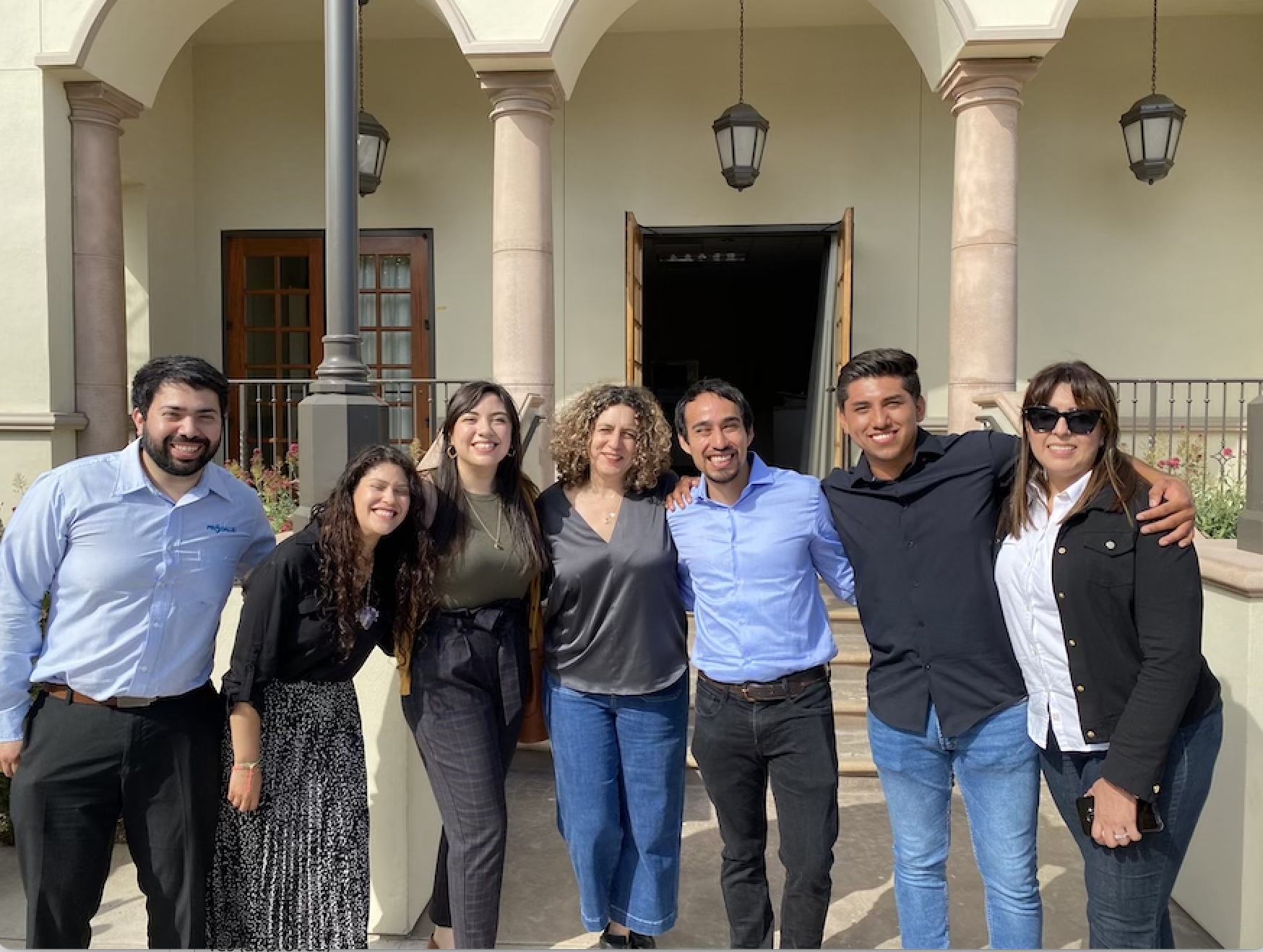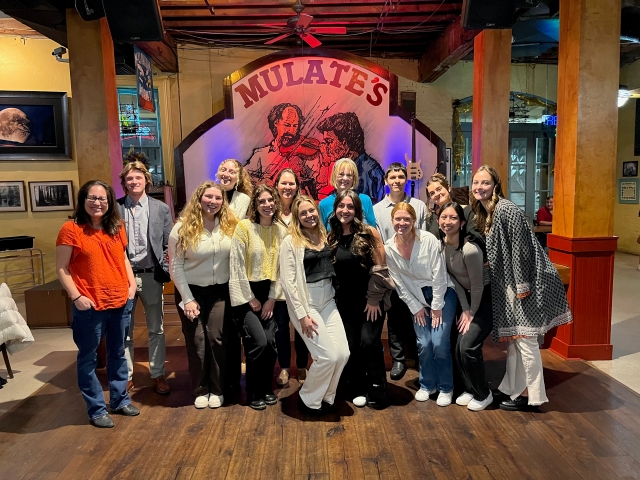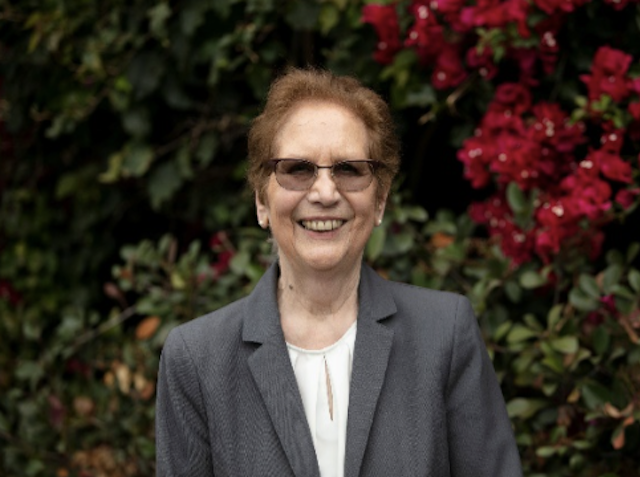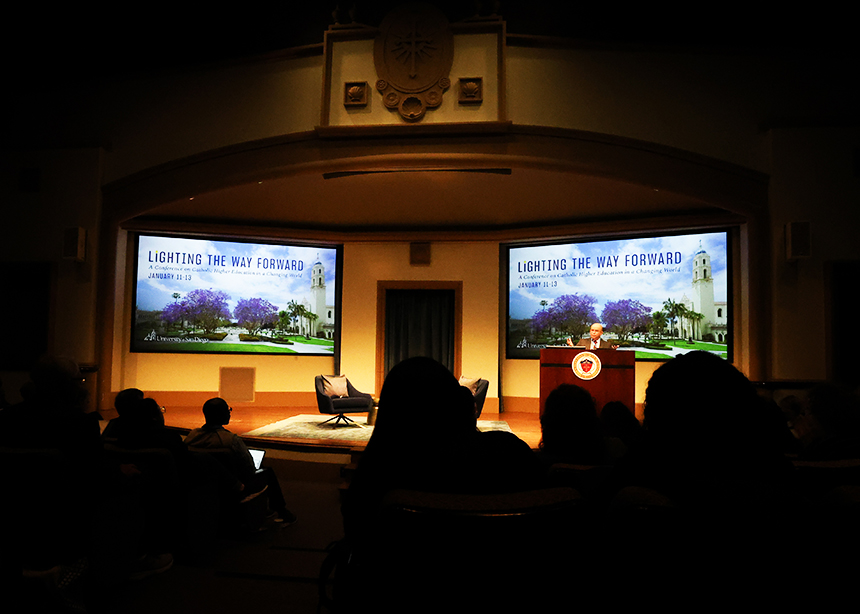The Hands that Build
Kroc IPJ Border Fellows Program Concludes First Year with Stories of Success, Hope

Hispanic Heritage Month is celebrated nationally from September 15 to October 15 and recognizes the contributions and influence of Hispanic Americans to history, culture and advancement.
Over the course of the month, USD News Center will highlight unique stories, thoughtful interviews and local events — both on campus and around San Diego — that encapsulate the spirit of this wonderful annual celebration.
Building a better world. It's a popular phrase used in countless different contexts. But what does it take to truly build a better world?
For six engaged and passionate professionals working and living in the U.S.-Mexico Border region, building a better world means making a positive and sustainable difference in their communities. With the help of the Cross-Border Initiatives program at the Kroc Institute for Peace and Justice, Dr. Rebeca Cázares, Luis Guillermo Gomez Rosales, Marla Lino, Florisse Vasquez, Alina Bretón and Miguel García have been able to advance their efforts to make the border region a more peaceful and inclusive space.
On May 18, they were able to share their experiences individually and collectively with a captive audience of students and faculty at the Kroc School as the first cohort of the Kroc Border Fellows. The event marked the completion of the year-long cohort program, and all in attendance were moved by their stories of hope, challenge and success.
“They are a dynamic group of young and established professionals working at the border region, and their projects improve lives for migrants, youth and neighborhoods across the region through efforts that include job training, community park rehabilitation, and access to health services,” said Franco Castro Escobar, Kroc IPJ Practice Fellow for Cross-Border Initiatives and current Kroc School Master’s in Peace and Justice student. “As our first Border Fellows cohort, they have done incredible and inspiring work, and we are excited to celebrate those achievements with them.”
During the non-residential program, which began in May 2021, each of the Border Fellows contributed to a cross-border network of local scholars, practitioners and policymakers working to initiate plans and projects with foundational goals tied to increasing peace, justice and education about migration challenges.
Out of the competitive applicant pool of 500 candidates, only six were chosen. Initially, each Fellow received a monthly stipend and a grant of $5,000 to fund their projects. They also met on a weekly basis with staff from Kroc IPJ to collaborate, co-create research, and build a network of border practitioners, researchers and policy makers that helped bring their projects to fruition.
The call for proposals for the 2022-2023 cohort of Border Fellows is now open with a deadline of June 13 to receive letters of interest.
While the projects the Fellows advanced during the last year varied in scope, each made an immediate and indelible impact. At the end-of-year event, the Fellows provided a summation of their projects, and the takeaways that will define the success of those projects, in their own words:
“I work at a nonprofit called PrevenCasa in Tijuana, and my program is a community health education program where we train healthcare providers in their last year of medical training how to provide services for vulnerable populations that are specific to their needs. At the same time, we do a series of workshops to help the community and the people who use our services better navigate the healthcare system in Mexico and build skills that improve the way that they approach healthcare services. At the end of 12 months, we have provided nine community workshops, we have trained 17 healthcare providers, and hopefully the program will keep on going. I’m incredibly grateful for the Kroc Institute for this opportunity and I hope that we can keep building these partnerships." — Dr. Rebeca Cázares
Luis Guillermo Gomez Rosales
"Thanks to the funding we received from Kroc IPJ, it was possible to benefit two different groups—one for men and one for women—where more than 20 young people were supported. And we achieved very high retention and referral rates. Currently, we are in the process of implementing a social marketing strategy, which will help us share everything that we are doing at the “Órale” program and attract more youth to join us. In addition, this marketing strategy will help us reach out to companies, schools, and civil society organizations to have a broader coverage of the program." — Marla Lino
"For me, this program turned out to be a very productive process of learning through feedback and sharing with people from different disciplines, but with the same goal: working for our local communities. The community of Tijuana. The border community. For instance, the mentoring we received from Melissa and Franco as tutors has been very important in the development of my project, which started as an idea, and then it grew, adapted, and was molded. Now it has gone through many different processes, but it is at a point very close to its final stage. I am very excited because the first pilot exhibition will be in June and the tour of the schools will begin in September." — Florisse Vasquez
"I am the operations manager at the uniform factory “La Favorita”, and I am also the president and founder of “Al Norte sin Límites”, which is a civil association—created thanks to the support of Kroc IPJ—which is currently training migrants in the apparel industry every two months. In two months, the participants graduate, and receive a diploma that certifies their knowledge and ability to sew. So, this then allows them to look for a job, either in the apparel industry, on their own, or right here in the factory where I work. After a year of having started as a pilot project, this initiative has now become an officially established Civil Association, recognized by the Mexican government, and this is how the project is concluding, as an established institution which has trained about 26 people, the majority of whom are of Haitian origin." — Alina Bretón
“As a Kroc Border Fellow, I’ve made several conclusions about community work. Probably the most important is you’re never going to have everyone happy, at least at the beginning. I hope the project motivated other communities to replicate the project, or if not replicate, to try to recover their own parks and to start changing their lifestyle. I hope at least I made that little impact on the community.” — Miguel Garcia
— USD News Center



